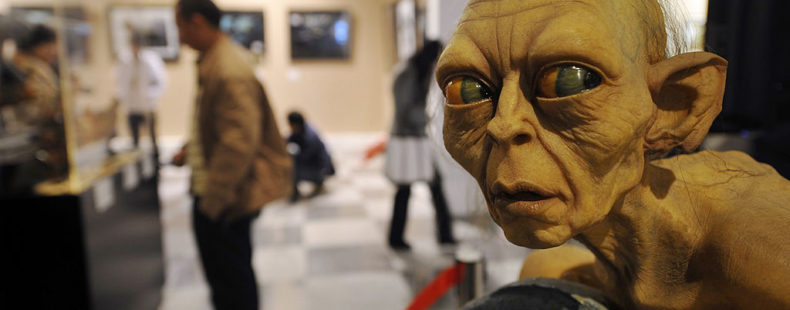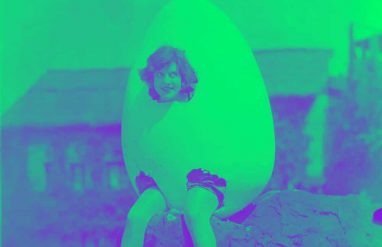Bilbo Baggins, Frodo Baggins, and Samwise Gamgee—we all know J.R.R. Tolkien created these beloved hobbits for his Hobbit (1937) and Lord of the Rings (1954–55) books. Hobbits are an imaginary race similar to humans, but they are short and have hairy feet. But, while Tolkien conjured up these memorable creatures, did he also the invent word hobbit?
Where did hobbit come from?
As you may have guessed, hobbits are a fictional race born in Tolkien’s imagination. He even created an etymology for the word, making hobbit derive from holbylta, based on Old English roots meaning “hole-dweller.”
Tolkien invented three groups of hobbits. The Harfoots were the smallest of all the hobbits and also the first to enter Eriador, a large region of Middle-earth. The Fallohides are the least populous of the hobbits, and tall and fair. The stocky Stoors were the last to enter Eriador. They stand out as being the only hobbits that are willing to swim; the slimy creature Gollum was a Stoor.
Other creatures in the world in Middle Earth call the hobbits halflings, as hobbits are considered half the size of humans.
Did Tolkien make up the word?
Tolkien is often credited with coining the word hobbit for his 1937 Hobbit, which opens with famous line: “In a hole in the ground there lived a hobbit.” That hobbit, of course, is Bilbo Baggins. In fact, Tolkien himself said the word came to him in a flash of inspiration.
But there are some earlier instances of the word. In 1895, the folklorist Michael Aislabie Denham published a long list of supernatural creatures, based on a 1584 book, the Discovery of Witchcraft. Here’s an excerpt: “… nixies, Jinny-burnt-tails, dudmen, hell-hounds, dopple-gangers, boggleboes, bogies, redmen, portunes, grants, hobbits …”
While Tolkien was a masterful adapter of mythology and folklore, there isn’t the slightest suggestion that he was aware of Denham’s list. Tolkein’s apparently independent invention of hobbit may well have been a coincidence. It may have also been influenced, in some part, by other English words, such as hobgoblin (“a mischievous goblin”) and hobbledehoy (“an awkward, ungainly youth”).
Fun fact: Tolkien’s interest in language predates his career as a professional writer. After World War I, the Oxford English Dictionary was Tolkien’s first employer. His job at the dictionary involved working on the history and etymology of Germanic words that begin with W.














